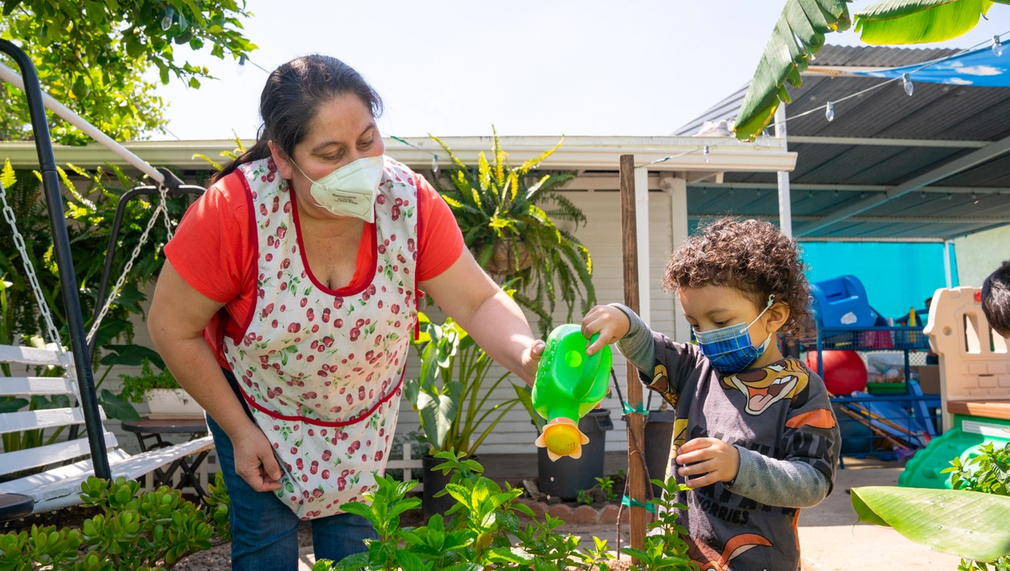Fostering Families, Mitigating Trauma
The very act of entering the foster care system imposes trauma on young children, which can cause symptoms that caregivers do not understand and manifest in challenging behaviors to which adults may respond inappropriately – leading to still more trauma. Trauma Informed Care (TIC) can help children overcome their pain, yet most foster parents are not trained on how to best support a trauma-impacted child. This program is an essential step in increasing our communities’ resiliency with regards to trauma and lessening its impacts on children

What is the primary issue area that your application will impact?
Support for Foster and Systems-Impacted Youth
In which areas of Los Angeles will you be directly working?
Central LA
In what stage of innovation is this project, program, or initiative?
Applying a proven model or solution to a new issue or sector (e.g., using a job recruiting software or strategy to match clients to supportive housing sites, applying demonstrated strategies from advocating for college affordability to advocating for housing affordability and homelessness, etc.)
What is your understanding of the issue that you are seeking to address?
Young children who suffer trauma experience long-lasting negative effects including brain impairments, problems forming attachments, and significant mental health conditions. They develop unhealthy behaviors and habits such as aggression and disobeying adults. LA County has 30,000 children in foster care – 30% under 5. Each of them has experienced trauma—often abuse and neglect, but at a minimum, separation from their birth family. Foster parents who do not comprehend this experience may misjudge the child’s negative behavior, addressing it with efforts that are ineffectual and damaging. Worse, they may inflict even more trauma by disrupting the placement (most children in foster care more than 24 months experience 3 or more placements). Foster parents are not routinely provided with an understanding of TIC. We need to change this, starting now, so that children in foster care can find the safety that will mitigate the effects of their trauma and transform their lifetime outcomes.
Describe the project, program, or initiative this grant will support to address the issue.
We are experts at providing TIC training and support to child care providers – now we want to expand to caregivers of young foster children who, unlike older children, cannot express their feelings in words. Young children suffering from trauma generally have difficulty regulating behaviors and emotions, which may make them clingy, fearful of new situations, easily frightened, difficult to console, and/or aggressive and impulsive. They may have difficulty sleeping, lose developmental skills, show regression in functioning and behavior. It is vital that foster parents recognize these as symptoms of trauma and react with therapeutic procedures – and we must teach them how to do this. We propose a-3-pronged approach: trauma trainings, 1:1 consultations, and group programming. We would offer 2-4 workshop/seminars per month (in English and Spanish) to introduce TIC and offer concrete strategies to soothe a child exhibiting difficult behaviors and promote regulation and executive functioning, to implement routines and smooth transitions, and to reduce caregiver stress. The 1:1 consultations (20-40 per month, 30-60 mins each) would address the inevitable individual issues. And the group programming, part of our ongoing Family Engagement Initiative (4 events per month), would offer additional opportunities to build skills and discover tools to support their family’s resiliency, expand the social emotional development of children, and enhance the social connectedness of parents.
Describe how Los Angeles County will be different if your work is successful.
In the short term, this project will train 400-600 foster parents to help the approximately 1,200 young children in their care begin to recover from traumatic experiences – and help prevent the additional trauma of disrupted placements. In the long term, this early intervention will help transform children’s outcomes for life. We do mean “transform.” The achievement gap between foster youth and the general population is staggering, with foster youth trailing their peers in standardized test performance, high school graduation (in California, only 53% of foster youth graduate high school on time vs 83% of youth in general), and postsecondary education (only 3% of foster youth graduate college). Research shows that foster youth experience disproportionately high rates of homelessness (11%-38%) and commit more crimes (90% of youth with 5 or more placements become involved in the criminal justice system). The training we propose can mitigate those statistics.
What evidence do you have that this project, program, or initiative is or will be successful, and how will you define and measure success?
We are applying a proven model to a new population: in post-workshop surveys, almost every provider praised the critical nature and effectiveness of our TIC training and expressed the need for parents/caregivers to also receive it. We also know it is timely through a recent annual survey of over 600 Early Childhood Care providers and teachers across LA County. While the full report has not yet been released, preliminary findings confirm that families in ECE programs are challenged by stress (69%), financial insecurity (58%), and joblessness (43%) – issues that are causing an increase in challenging behaviors exhibited by their children (37%), behaviors that already-stressed parents are less able to address with patience and understanding. While these results apply to low-income families in general, we worry that parental stress will exacerbate poor reactions in the case of foster families. In all, building trauma-resistant communities has become a critical goal for our organization.
Approximately how many people will be impacted by this project, program, or initiative?
Direct Impact: 500
Indirect Impact: 1,200